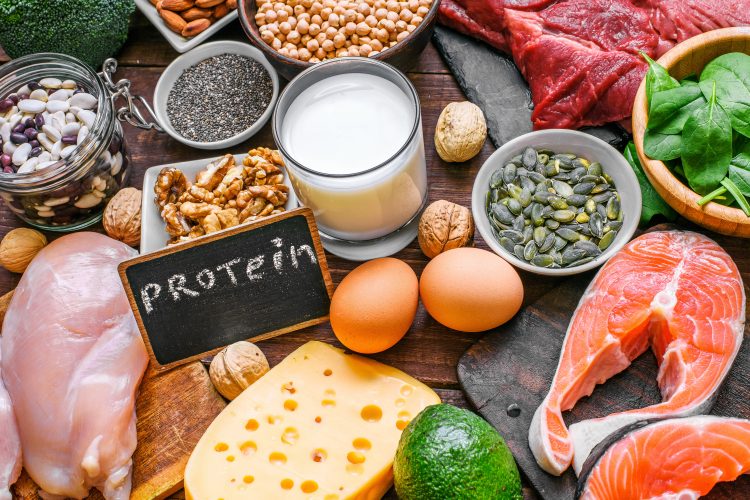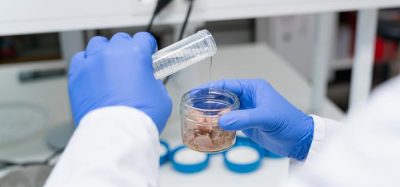What meals have the highest rate of protein synthesis?
- Like
- Digg
- Del
- Tumblr
- VKontakte
- Buffer
- Love This
- Odnoklassniki
- Meneame
- Blogger
- Amazon
- Yahoo Mail
- Gmail
- AOL
- Newsvine
- HackerNews
- Evernote
- MySpace
- Mail.ru
- Viadeo
- Line
- Comments
- Yummly
- SMS
- Viber
- Telegram
- Subscribe
- Skype
- Facebook Messenger
- Kakao
- LiveJournal
- Yammer
- Edgar
- Fintel
- Mix
- Instapaper
- Copy Link
Posted: 20 December 2023 | Grace Galler | No comments yet
New research has revealed that beef meals result in higher muscle protein synthesis rates than vegan meals.


According to latest research from Maastricht University Medical Center, despite having the same caloric and total protein contents, a whole food omnivorous meal with lean beef results in greater postprandial muscle protein synthesis rates than a whole food vegan meal in older adults.
The study, titled “Higher muscle protein synthesis rates following ingestion of an omnivorous meal compared with an isocaloric and isonitrogenous vegan meal in healthy, older adults,” was published in the Journal of Nutrition and was one of the first randomised controlled trials to compare anabolic properties of whole protein foods when consumed as part of mixed meals.
Researchers observed a 47 percent higher muscle protein synthesis rate following consumption of the omnivorous meal with lean beef, compared with the whole food vegan meal that provided an equal amount of protein from plants.
“While studies have previously assessed the impact of consuming isolated proteins, this research aims to mirror a more real-life setting by understanding the effects of eating whole protein foods as part of a typical meal,” said Luc van Loon, PhD, professor of Physiology of Exercise and Nutrition, Department of Human Biology, Maastricht University Medical Center+, and principal investigator of the research study.
“Given the importance of protecting lean body mass to maintain strength as we age and the growing interest in vegetarian and vegan lifestyles, this research is important to understand if protein food sources can be equally effective in supporting muscle maintenance and growth.”
Using past research comparing the ingestion of different protein sources, the researchers calculated that 16 participants would be needed to complete the study and detect a potential difference in muscle protein synthesis rates following ingestion of the two meals.
The clinical trials then analysed 16 healthy, older adults (ages 65-85 years), in Maastricht, the Netherlands. On one test day, the participants ate a whole food omnivorous meal containing 3.5 ounces of lean ground beef as the primary source of protein, with potatoes, string beans, applesauce (made of 100 percent apples), and herb butter.
On a different day, participants were asked to eat a whole food vegan meal of equal caloric and protein content, comprised of unprocessed, commonly consumed plant protein foods such as quinoa, soybeans, chickpeas, and broad beans, as the main ingredients.
Both meals contained on average 36 grams of protein, which is aligned with evidence-based recommendations for stimulating muscle protein synthesis in older individuals (i.e., 0.45 g protein per kg body weight).
“We were interested in studying the impact of meal consumption on muscle protein synthesis in older adults given the significance of age-related loss of muscle mass and strength, known as sarcopenia, which is a growing public health concern globally,” continued van Loon.
Two days before each of the study days, all participants refrained from sports and strenuous physical activities, as well as alcohol consumption. Researchers compared post-meal plasma amino acid profiles and muscle protein synthesis rates, using blood and muscle biopsies that were collected frequently for six hours following meal ingestion. In addition to observing the 47 percent increased muscle protein synthesis rate over a six-hour postprandial period, researchers noted plasma EAA concentrations were 127 percent higher following the lean beef meal, despite the vegan meal not presenting any selective amino acid deficiencies.
“Importantly, plasma leucine, which is an essential amino acid particularly important for muscle protein synthesis, was 139 percent higher in participants, after they ate the omnivorous beef-containing meal,” said Philippe Pinckaers, MSc., lead author of the publication.
“While more research is needed over a longer timeframe, this study illustrates the potential impact of the food matrix and significance of amino acid bioavailability and biofunctionality differences between beef-containing and vegan meals,” concluded Pinckaers.









